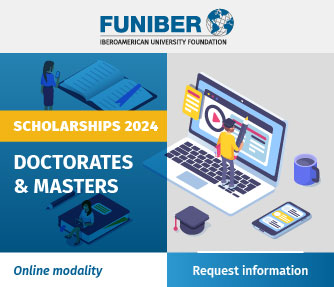MLS Inclusion and Society Journal
ISSN: 2794-087X
Former International Journal in Support of Inclusion, Speech Therapy, Society, and Multiculturalism
The MLS Inclusion and Society Journal is the continuation of the International Journal in Support of Inclusion, Speech Therapy, Society, and Multiculturalism (RIAI), heir journal of the older RIALAIM journal, but from which it became independent to take the guidelines of current journals with impact indicators. The MLS Inclusion and Society Journal currently has research and theoretical articles, both international and national, which are refereed by blind peers external to the journal in a rigorous selection process. The thematic axes are inclusive education, speech therapy, society, and multiculturalism. The MLS Inclusion and Society Journal has a periodicity of two issues per year (June and December).
Interactivity with readers and authors
The journal keeps readers informed every time a new issue is published or a press version is available. Likewise, authors are informed in real time of the status of the manuscript submitted for review and, likewise, they are informed when the manuscript is accepted and published.
Latest articles
Announcements
2024-12-19
A new issue of the journal MLS Inclusion and Society Journal, corresponding to December 2024, has been published and can be consulted in the following table of contents: https://www.mlsjournals.com/MLS-Inclusion-Society/issue/view/93
We thank you all for your participation and involvement in this issue and ask you to disseminate the contents among your contacts so that they can be useful in their future research and publications.
Accepted articles
This article examines the growing inclusion of autistic students in regular educational settings, highlighting the challenges and opportunities this process brings to pedagogical practice. The inclusion of these students requires differentiated and adaptive pedagogical practices, due to the difficulties educators face in managing classroom crises and addressing the individual needs of each student. The study emphasizes that all students have the right to be attended to in their uniqueness, requiring schools and educators to adopt an approach centered on respect for diversity. Although challenging, the inclusion of autistic students is presented as beneficial for all involved, fostering a more empathetic understanding of human differences among teachers, peers, and families. The article underscores the importance of the school staff remaining open to continuous learning and emphasizes that early diagnosis of autism is crucial for developing effective pedagogical strategies. Collaborative contact with the student's family and the support of specialized professionals are essential to creating an inclusive environment. Furthermore, raising awareness among school staff and the constant exchange of experiences between teachers are highlighted as key practices for successful inclusion. This research thus contributes to the debate on the need for adaptations and differentiated strategies that promote effective inclusion, ensuring a quality and equitable education for all students.












